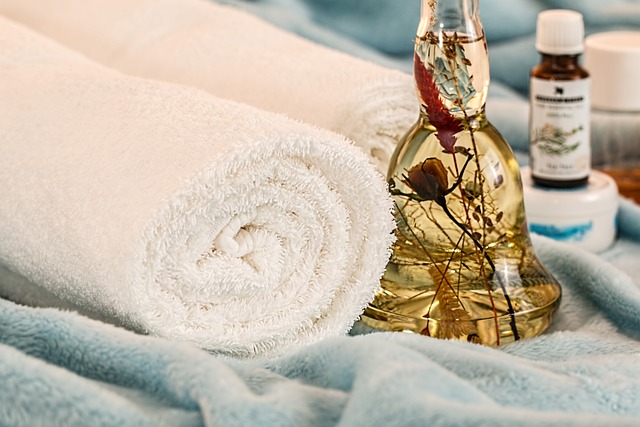Cold water therapy, an ancient practice involving brief immersions in cold water, has gained modern popularity as a powerful tool for mental health. By triggering physiological responses like endorphin release and enhanced blood circulation, it reduces stress, improves mood, and fosters emotional resilience. Testimonies and studies highlight its effectiveness in managing anxiety, depression, insomnia, and chronic pain, making it a potentially revolutionary approach to mental wellness. Incorporate simple practices like morning cold showers or ice baths into your routine for significant benefits.
“Unleash your inner strength and embrace the power of cold water therapy for enhancing emotional resilience. This ancient practice is gaining modern popularity as a natural way to strengthen mental health.
In this comprehensive guide, we explore ‘Understanding Cold Water Therapy’ and its potential to unlock mental resilience. From the science behind its emotional regulation benefits to real-life testimonials, discover how integrating cold plunges into your self-care routine can empower you to overcome challenges and foster a healthier mind.”
Understanding Cold Water Therapy: Unlocking Mental Resilience
Cold water therapy, also known as cold plunging or hydrotherapy, is an ancient practice that involves immersing oneself in cold water, typically for a short period. This technique has gained modern popularity due to its potential benefits for mental health and emotional well-being. By exposing the body to a sudden drop in temperature, cold water therapy triggers a range of physiological responses.
One of its key effects is the release of endorphins, often referred to as “feel-good” hormones, which can reduce stress and improve mood. This therapy also enhances the body’s natural healing processes by increasing blood circulation and promoting better lymphatic flow. As a result, individuals experiencing anxiety, depression, or chronic stress may find cold water therapy to be a powerful tool for building mental resilience. It offers a unique way to challenge the mind and body, fostering a sense of accomplishment and boosting overall emotional strength.
The Science Behind Emotional Regulation and Cold Plunges
The human mind, much like our physical bodies, benefits from various therapeutic practices to maintain optimal health and function. Cold water therapy, particularly cold plunges, has emerged as a powerful tool in the realm of mental health and emotional well-being. The science behind this ancient practice suggests that submerging oneself in cold water can trigger a cascade of physiological responses that positively impact emotional regulation.
When one undergoes a cold plunge, whether it’s a quick dip in icy waters or using contrast showers, the body experiences a stress response. This response stimulates the release of various neurotransmitters and hormones, including norepinephrine and cortisol. These chemical messengers play a crucial role in modulating emotions by enhancing focus, reducing anxiety, and improving mood. The sudden cold exposure also prompts the body to increase blood flow to essential organs, delivering oxygen and nutrients that support overall mental clarity and emotional resilience.
Integrating Cold Water Therapy into Your Self-Care Routine
Integrating cold water therapy into your self-care routine can significantly enhance emotional resilience and overall mental well-being. This ancient practice, increasingly popular in the modern wellness scene, involves subjecting yourself to brief periods of cold water exposure, such as an icy shower or a cold plunge pool. The immediate shock to your body triggers a cascade of physiological responses, including increased heart rate and blood flow, which can boost your mood and energy levels. Additionally, cold water therapy stimulates the release of endorphins, often referred to as ‘feel-good’ hormones, naturally alleviating stress and anxiety symptoms.
Regular practice can help rewire your brain’s response to stress, making you more resilient to emotional challenges. Incorporating cold water therapy into your self-care routine is a simple yet powerful way to take charge of your mental health. Start small, perhaps with a cold shower in the morning or a quick dip in an ice bath after a long day. Over time, you can experiment with different techniques and durations that work best for you.
Real-Life Testimonials: Overcoming Challenges with Cold Water Exposure
In the realm of mental health and well-being, real-life stories offer powerful insights into alternative therapies like cold water exposure. Many individuals have shared their transformative experiences with cold plunges, highlighting its impact on emotional resilience. For instance, a study featured in Psychology Today showcased that regular cold showers helped reduce anxiety levels and improved overall mood in participants over time.
One such testament comes from Sarah, who struggled with stress-related insomnia. She incorporated cold water therapy into her daily routine by taking brief plunges in an ice bath. After several weeks, Sarah reported better sleep quality and a heightened sense of calm during stressful situations. Similar narratives are not uncommon; folks from diverse backgrounds have found relief from depression, trauma, and even chronic pain through this simple yet powerful practice. As these personal accounts suggest, cold water therapy for mental health could be a game-changer in navigating life’s challenges.
Cold water therapy, as demonstrated through scientific evidence and real-life stories, offers a powerful tool for enhancing emotional resilience. By integrating regular cold water exposure into self-care routines, individuals can unlock a profound sense of mental fortitude and better navigate life’s challenges. In today’s fast-paced world, where stress and anxiety often thrive, cold plunges present a simple yet effective strategy to promote well-being and cultivate a stronger emotional coping mechanism. Embracing the benefits of cold water therapy can be a game-changer for those seeking to strengthen their mental health and overall resilience.
